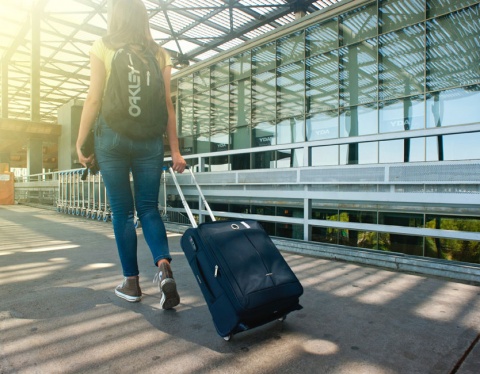Going abroad for higher studies is a fun and exciting adventure for everyone who dreams of visiting a foreign land but this new journey also comes with significant risks and challenges. If you have already started planning your study abroad destination, your parents must have already raised their concerns about the safety issue in the country and the risks associated with living in a foreign land.
Even though most popular study abroad destination boasts of friendly culture and a safe environment, you still need to take precautions while preparing to go abroad. From doing thorough research about your destination to taking safety measures while traveling abroad, here are 6 tips you can follow to make your study abroad journey a safe one!
1. Research your destination
The first thing you need to do is to research your destination. Read up about the crime rates in the city and the kind of society they live in. You can also contact study abroad consultations and get detailed information about which parts of the country are safe, what type of public transport to use, what kind of common scams are prevalent and more. Apart from that, you should learn about the cultural customs, etiquettes and the best neighborhoods to stay.
You should also avoid countries that are prone to or are under major political and civil unrest because as a foreigner, it will affect your safety.
2. Learn the Language
One of the easiest ways to stay safe is to have a clear understanding of what’s going on around you. Learning the language will have a huge benefit since you will be able to communicate your problems even if you get into trouble.
Not to mention, knowing the local language will help you read signs, bus schedules, or ask for directions and prevent you from getting lost or ending up in some dark alley. Therefore, it is better to bridge the language and culture gap and avoid bad situations.
3. Accustom yourself with the local laws and customs
The law in every country is widely different and therefore you need to prepare yourself beforehand about the local laws and customs that are followed in your study abroad destination. In many countries, there are several laws that are sensitive regarding drug and alcohol use, political correctness, anti-government agenda, public intoxication and so on. Before acting a certain way or speaking about a sensitive topic you should be aware of the consequences of it abroad.
In some countries, it is even illegal to speak ill about the government and support politically sensitive topics out in the open.
4. Prepare for emergency situations
It is not necessary that your entire trip will go as planned without a few challenges or hurdles your way. Therefore it is always advised to be prepared for everything. Especially when it comes to important papers like your travel documents, make sure to keep a copy of everything separately in case of an emergency. Jot down important phone numbers like your country’s embassy, study abroad consultancy, your guardian/ friend and make a digital copy of it as well.
5. Keep your friends informed
Probably one of the most important rules is to keep your friends informed about your location and let somebody know where you are going. You can always inform your roommate or university friends about your plans especially when you’re traveling alone or with acquaintances.
Keep in contact with them over the phone or even share your location to know you have safely reached/ arrived. Nowadays mobile phones have so many new applications for protection like the ‘find my iPhone’ app or location sharer tool to make it easy and safe for everyone who’s heading out.
6. Protect your health
When studying abroad, you need to worry about your travel and health insurance. In this case, if something happens you or your belongings, insurance will cover the damages and you don’t have to spend out of your pockets.
You should also check whether you need to take any vaccinations before heading out, ensure that you have a good supply of any regular prescriptions and have full access to them abroad. Your insurance should cover accidents and common medical conditions in case you are ill or injured while studying abroad since healthcare is very expensive in other countries.
At the end of the day, to make your study abroad experience a memorable one with little or no hassle you need to look ahead in the future and take steps to prevent mishaps from happening. By taking precautions and preparing yourself from emergencies you can be safe and sound even in a new country.


